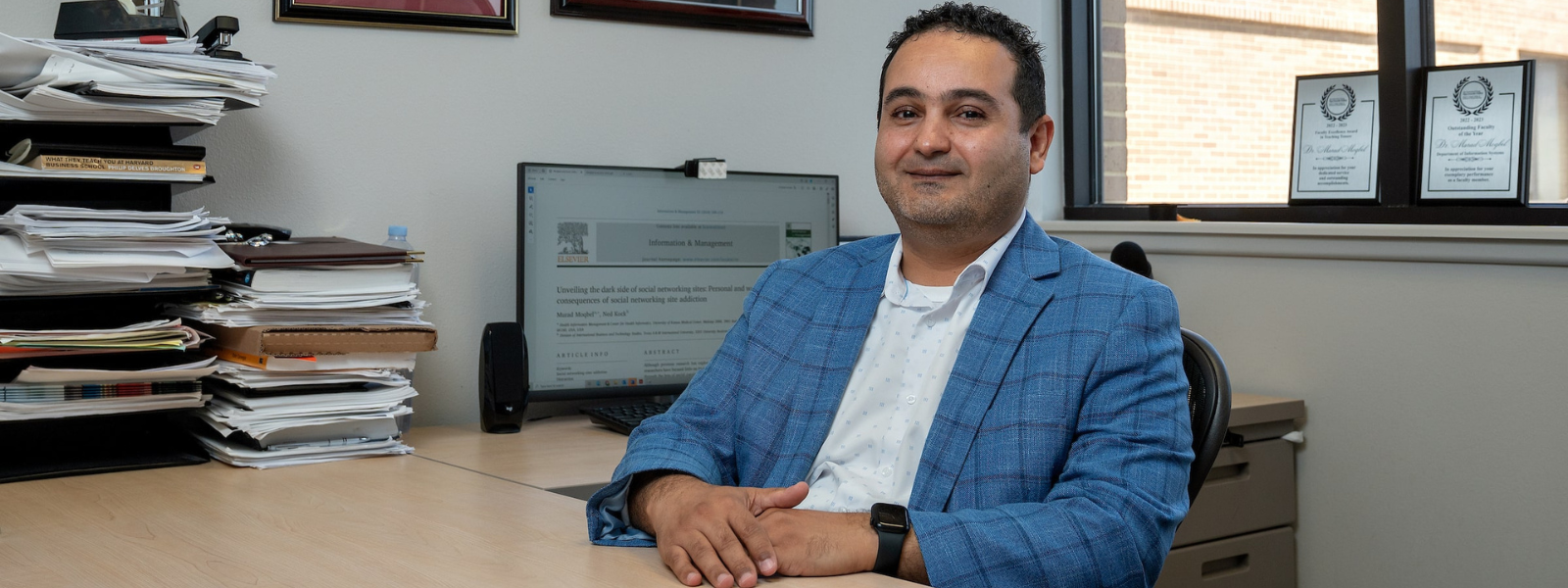Smart Phone Addition and Well-being
Promoting personal well-being and mental health is increasingly becoming a top priority for organizations and policy makers alike. A recent study by Dr. Murad Moqbel suggests one key strategy in this regard is to fight off smart phone addiction.
It seems like most of us interact frequently with our smart phones these days. While the occasional email check or social media updates on a mobile phone doesn’t seem like much, a more intense usage may be a symptom of smart phone addiction, which is often accompanied by, loss of control, preoccupation (excessive checking of a smartphone), euphoria (a rush of intense positive emotion with the use of the smartphone), tolerance (long hours of smartphone usage) and withdrawal (anxiety when not using the smartphone), among others.
How does smart phone addiction affect our well-being? A recent study by Dr. Murad Moqbel (Associate Professor of Information Systems) and his colleagues (Saggi Nevo from The State University of New York at Albany and Fiona Fui-Hoon Nah from City University of Hong Kong) sought to answer this question including the role of psychological strain (people’s perception that their personal resources are overwhelmed by demands from their environment) as the mechanism through which smart phone addiction reduces personal well-being.
Using the core tenets of Conservation of Resources Theory, the researchers proposed that one way smart phone addiction reduces personal well-being is through the depletion of mental and physical resources (such as time and energy) which in turn causes a strain and ultimately diminishes personal well-being. The study also considers the possibility that how individuals use smartphones--whether it is for pleasure (hedonic) or for getting work done (instrumental)—may further strengthen the adverse effects of smart phone addiction on personal well-being.
The researchers used published scales to measure smart phone addiction, well-being and strain. Hedonic smartphone use was measured using the number of hours respondents’ spent on the top five hedonic apps reported in the smartphone battery usage in the past week. In their analysis of data from 236 smartphone users in a large university medical center, Dr. Moqbel and his colleagues found that smartphone addiction negatively impacts personal well-being by draining a key personal resource, energy, thus creating strain. The adverse effect of smartphone addiction on users’ well-being was found to be more intense when smartphones are used for hedonic purposes.
Overall, Dr. Moqbel believes the findings of the study shed light on how smart phone addiction end up reducing a person's well-being by creating psychological and physical strain. He believes the findings assist healthcare professionals and managers design effective intervention strategies. The findings could help individuals who struggle with smart phone addiction by being aware of their overall smart phone usage (particularly hedonic usage) and by engaging in alternative energy-generating activities such as sports and mindfulness exercises.
The study was published in Internet Research, a high-impact journal in RCVCOBE’s journal quality guide.

